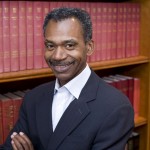
As an SAP Finance & Enterprise Performance Technology Consulting Senior Manager, you will have the opportunity to:
- Advise upon, lead and work on high impact activities within the systems development life cycle
- Provide advisory work for the IT function itself
- Design, implement and deploy SAP solutions to achieve defined business goals
- Maintain skills in SAP applications process design and configuration; SAP application design, development, integration, testing and deployment; and SAP application technical architecture
Responsibilities:
- Provides solutions to complex business problems for area(s) of responsibility where analysis of situations requires an in-depth knowledge of organizational objectives
- Involved in setting strategic direction to establish near term goals for area of responsibility
- Interacts with senior management levels at a client and/or within our client which involves negotiating or influencing on significant matters
- Has latitude in decision-making and determining objectives and approaches to critical assignments.
- Decisions have a lasting impact on area of responsibility with the potential to impact outside area of responsibility
- Manages large teams and/or work efforts at a client




 By Lisa Sterling
By Lisa Sterling by Michael Jarrett
by Michael Jarrett

 There were many late nights during Thomas’s time at a private equity firm, but two of them really stand out. On the first, he was at a bar. Earlier in the day, his boss had let him know that he was the top performer in his cohort. Over drinks that evening, he struck up a conversation with a partner at a rival firm. “You’re the guy who closed two deals in six months, aren’t you?” the man asked. It was a moment Thomas had dreamed of and worked for since leaving his small town for college, the first in his family, years before.
There were many late nights during Thomas’s time at a private equity firm, but two of them really stand out. On the first, he was at a bar. Earlier in the day, his boss had let him know that he was the top performer in his cohort. Over drinks that evening, he struck up a conversation with a partner at a rival firm. “You’re the guy who closed two deals in six months, aren’t you?” the man asked. It was a moment Thomas had dreamed of and worked for since leaving his small town for college, the first in his family, years before.